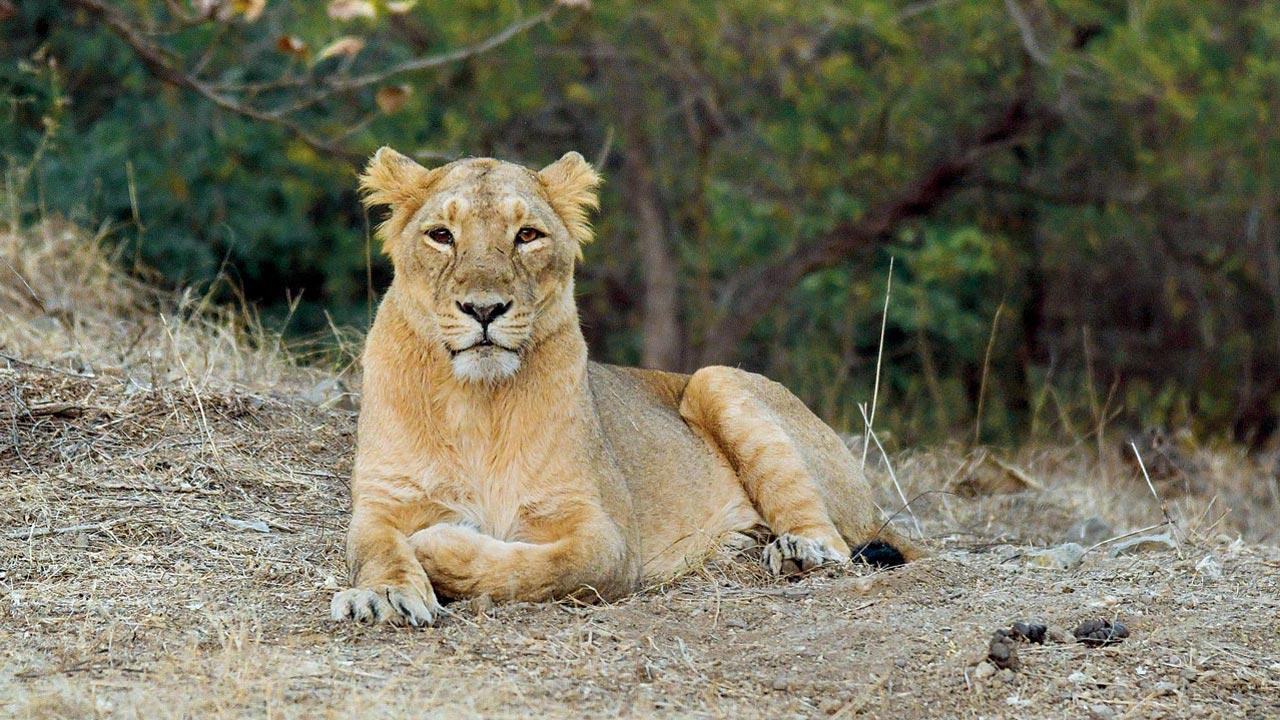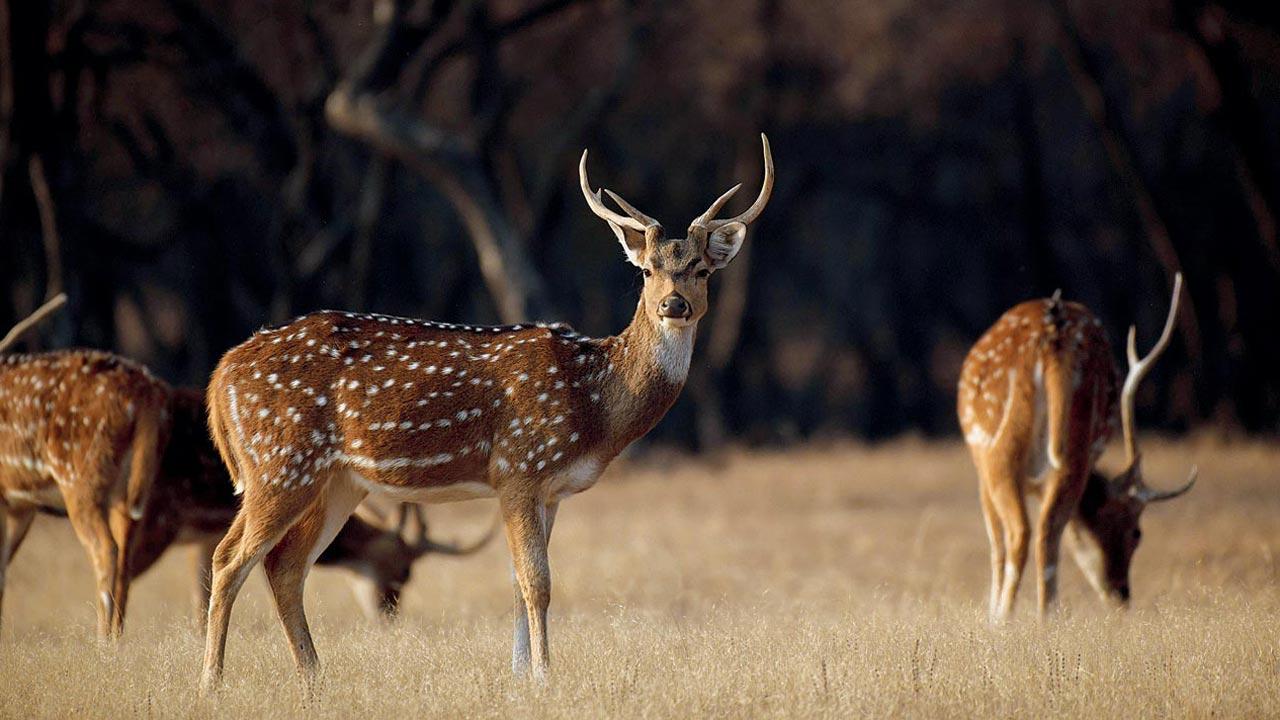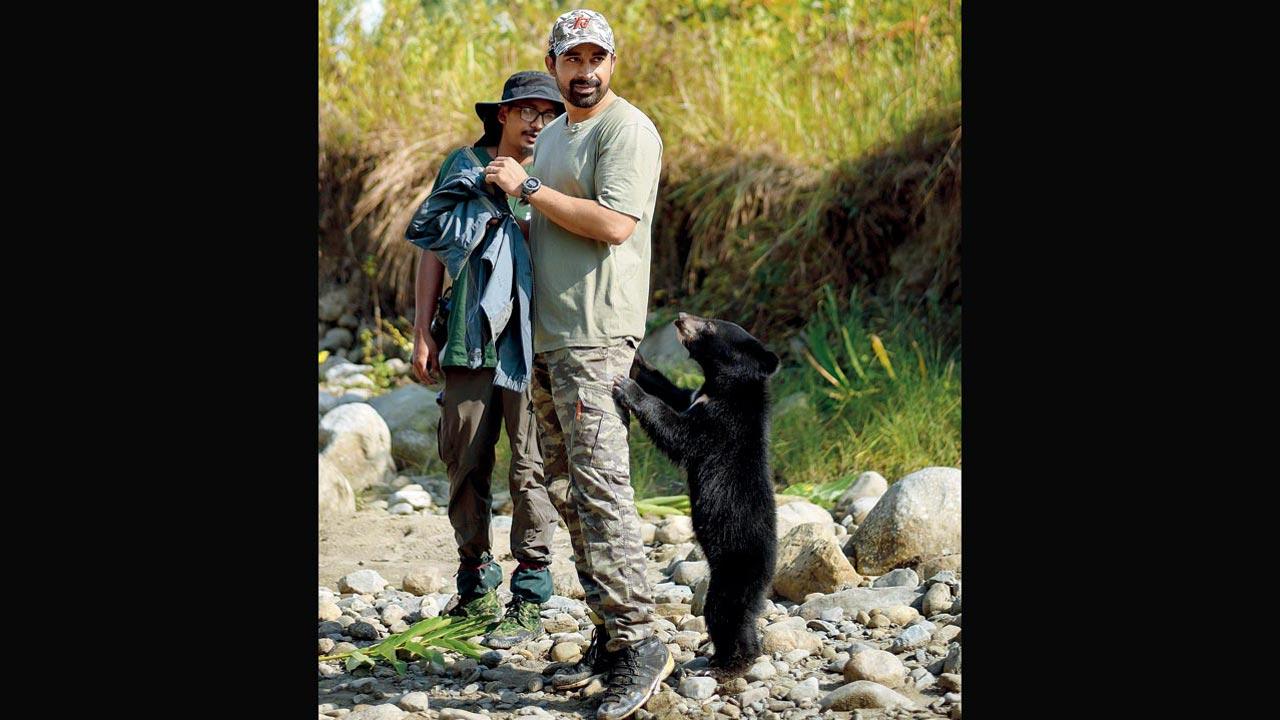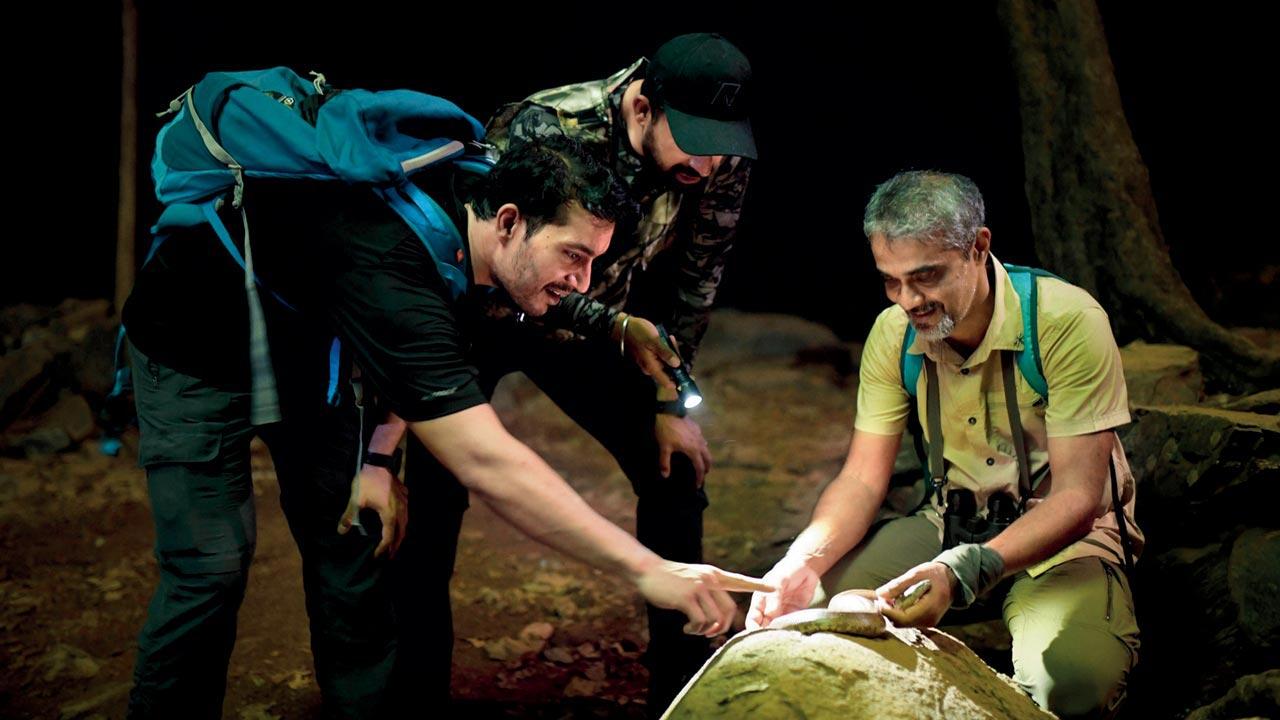Fresh from shooting for a new show on safaris across India, Rannvijay Singha recommends the best for the next time you want to do a forest holiday

Singha meets Shivang Mehta, a wildlife photographer at Corbett
Adventure
Tour & Taste
Relaxing
Educational
Ancient & historical
ADVERTISEMENT
Actor and anchor Rannvijay Singha has had an enviable job for the last few months. As the face of a new show on Zee Zest, Safari India, he has spent working hours inside deep forests, meeting with naturalists, guides, wildlife photographers, forest officers and locals, all of whom in some way have dedicated their time to conserving and protecting nature.
Singha speaks to Sunday mid-day about making the most of a vacation in the wild.
Jim Corbett National Park, Nainital
Just beautiful! That’s the only way to describe Corbett. And its geography makes it so. The river Ramganga, the adventure and the safaris, the locals and their life—everything is centred around Jim Corbett. It’s a place that has featured in numerous books and you can tell by the way it’s run that they are masters at conserving nature. I went trekking through the park to get to Jamun where I got a few lessons from a wildlife photographer. The sightings are grand because of the way the park is laid out. While it is famous for sighting tigers, we also got to see a family of elephants.
Kaziranga National Park, Assam
 The great Indian one-horned rhinoceros at Kaziranga National Park. Pics Courtesy/Zee Zest
The great Indian one-horned rhinoceros at Kaziranga National Park. Pics Courtesy/Zee Zest
Kaziranga is the only place in India where you can see the great Indian one-horned rhinoceros. But also watch out for other wildlife like buffaloes and migratory birds like the bar-headed goose. The unique feature of the park is that it is fed by the Brahmaputra River and the annual flooding has resulted in huge wetlands which help feed the flora and fauna in the area. This flooding also brings out the natural way of survival where the fittest animal survives the floods and crosses over into the highlands. It is very unique that Kaziranga has its own way of figuring out who will survive. At one point, the park was only 432 sq km. Today, it is around 1,300 sq km. And it’s heartening to learn that poaching cases have gone down. There was only one incident reported last year.
Gir National Park, Gujarat

A dry, deciduous forest, Gir is the only place you can see the Asiatic lion. Back in the 1920s, I am told that there were only about 12-18 lions left because of hunting. Then everyone realised the need for conserving the habitat and species. After almost 100 years, the national park has 674 lions. It may not be a very large number but it is a positive sign and credit needs to be given where due. What makes Gir stand out are the people, their language, the local tribes and their stories. Look out for crocodiles too but of course, it’s the lion that’s the main attraction.
Ranthambore National Park, Rajasthan
 Since the forest here is not dense, it is easy to sight animals at Ranthambore
Since the forest here is not dense, it is easy to sight animals at Ranthambore
Sighting a tiger is fairly easy because Ranthambore, as a forest, is not very dense. It is, however, a royal place. Other than the forest and wildlife, it’s the fort, old ruins, the talabs (lakes) that make it beautiful. Wildlife mixed with historical monuments, the royal family and the people who visit from across the world make the visit a unique experience. Spend a few days at Ranthambore and you’re sure to sight at least one tiger or tigress, besides other wildlife like deer.
Dubare Elephant Camp, Karnataka

Located near the Kaveri River, Dubare is known to take care of elephants that are victims of man-animal conflict. Locals and mahouts (the person who works with, rides and tends elephants) have dedicated their lives to being around elephants and helping them. Besides this, locals have also realised that angling is a big sport. People from across the world come here to catch and later release Tor ramadevii (an orange-finned mahaseer which is a critically endangered species of freshwater fish restricted to the Kaveri River basin). The funds generated through the sport go back to providing for the locals and the ecosystem. After having met those involved with the initiative, I saw that there is light at the end of the tunnel.
Pakke Tiger Reserve, Arunachal Pradesh
 Singha visited the Centre for Bear Rehabilitation and Conservation (CBRC) where they were rewilding orphaned bear cubs deep in the jungle
Singha visited the Centre for Bear Rehabilitation and Conservation (CBRC) where they were rewilding orphaned bear cubs deep in the jungle
Pakke is a really dense rainforest. But my experience stood out because I was on foot, something which is not allowed unless you have special permission. I was told that the rainforest is so dense that I wouldn’t be able to tell if there was an elephant or tiger a metre away. It was unique because it felt like an Amazonian jungle with streams, something I’ve only seen in films. At the tiger reserve, I visited the Centre for Bear Rehabilitation and Conservation (CBRC) where they were rewilding orphaned bear cubs deep into the jungle, in their natural habitat. Besides tigers, the park is also home to leopards, panthers and wild elephants.
Netravali Wildlife Sanctuary, Goa
 Singha meets naturalist Parag Ranganekar at Netravali as they trek to Savri waterfall and catch the Whitaker’s boa snake
Singha meets naturalist Parag Ranganekar at Netravali as they trek to Savri waterfall and catch the Whitaker’s boa snake
On your next Goa trip, ditch the family, fun and partying and instead explore the natural side of the state which is quite rich. Netravali is a rainforest with a huge variety of butterflies, dragonflies, snakes and dolphins. Besides wildlife, it also has mangroves. When you are in the thick of the forest, remember to respect the wildlife and trust your guide. The more you do, the more enjoyable your sightings will be.
Want to hear from you
We are looking to visit and write about interesting places of stay and travel, near and far. If you wish to host us for a fair, engaging experience review, write to us at smdmail@mid-day.com
 Subscribe today by clicking the link and stay updated with the latest news!" Click here!
Subscribe today by clicking the link and stay updated with the latest news!" Click here!







